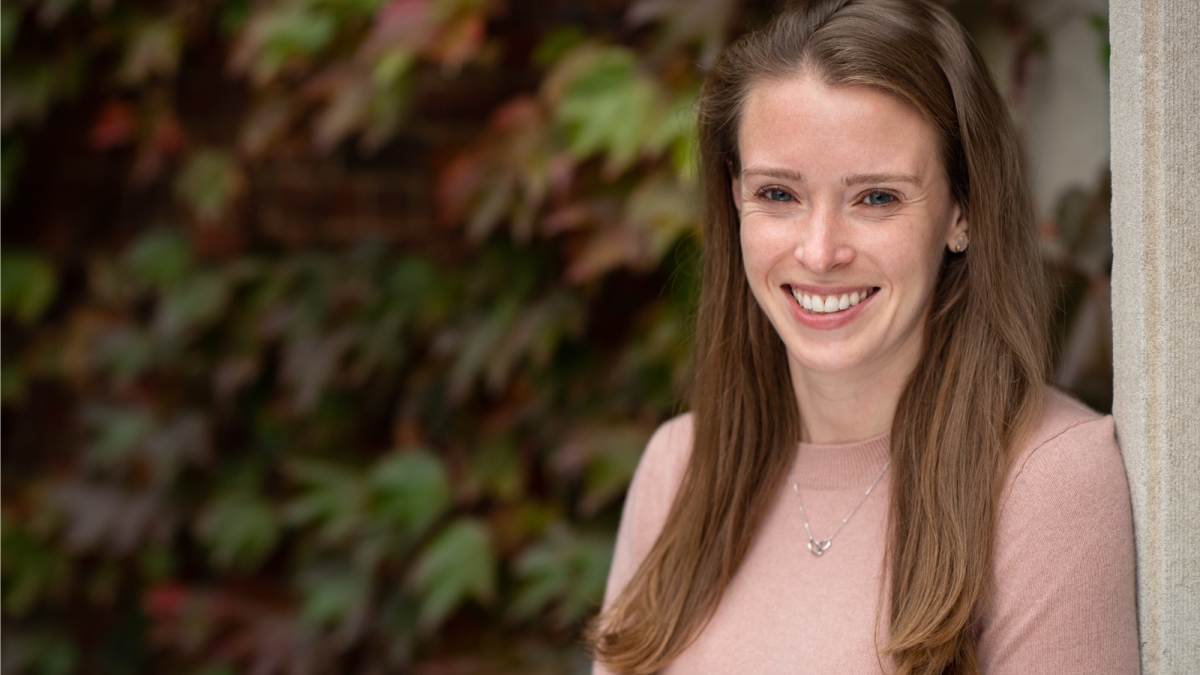This fall, Anna Meyerrose joins Arizona State University as a new assistant professor in the School of Politics and Global Studies.
“The School of Politics and Global Studies seems to be growing quickly and bringing in a number of leading scholars in their respective fields,” Meyerrose said. “I look forward to learning from and collaborating with these new colleagues over the coming years.”
Meyerrose comes to ASU from Princeton, where she was a postdoctoral research fellow. She received her PhD in political science from The Ohio State University.
Her research focuses on the ways in which international organizations and other aspects of globalization both condition and also create challenges for domestic democratic institutions.
"Dr. Meyerrose is a first-rate scholar, who is engaging what is perhaps the most important question of our time. We are thrilled to have her join the School of Politics and Global Studies," said Magda Hinojosa, ASU professor and director of the school.
This fall, Meyerrose will be teaching political science courses on European Democracies and World Politics. She spoke with ASU News about why she came to ASU and what she hopes to accomplish while at the university.
Question: What is the focus for your area of research and why did you choose that field?
Answer: My research is centered on how domestic democratic institutions both influence and are shaped by international factors such as international organizations, trade and economic globalization more broadly. A lot of my research to date has centered on contemporary cases of democratic backsliding. Initially, my focus was on international drivers of domestic backsliding, and more recently I have begun to explore how these backsliding states work together within historically Western liberal international fora, such as the U.N., to advance their (illiberal) interests. As a scholar of European politics, I first became interested in this topic with the onset of cases of backsliding within the European Union, an international organization that existing research suggested should be particularly well-equipped to promote and protect democracy within its borders.
Q: Why did you decide to join ASU?
A: ASU’s efforts to foster interdisciplinary research make the university a particularly exciting fit for me. My research inherently spans multiple subfields within political science, and therefore I am excited to be part of a school and university that encourages work beyond the traditional boundaries that still dominate many other academic institutions.
Q: What do you hope to accomplish as you work at the university?
A: In addition to continuing my current research agenda, most specifically in the form of further developing and completing my project on international drivers of and potential remedies for democratic backsliding, I anticipate that the wide range of regional and substantive expertise represented in (the school) will provide opportunities to start exciting new projects. I am also looking forward to advising both graduate and undergraduate students; if I am able to encourage at least a few students to study the current global democratic recession — and, further, to contribute to ongoing debates to develop potential solutions — I would be thrilled.
More Law, journalism and politics

Exhibit uses rare memorabilia to illustrate evolution of US presidential campaigns
After one of the most contentious elections in history, a new museum exhibit offers a historical perspective on the centuries-old…

TechTainment conference explores the crossroads of law, technology, entertainment
What protections do writers, actors, producers and others have from AI? Will changing laws around name, image and likeness (…

How to watch an election
Every election night, adrenaline pumps through newsrooms across the country as journalists take the pulse of democracy. We…
